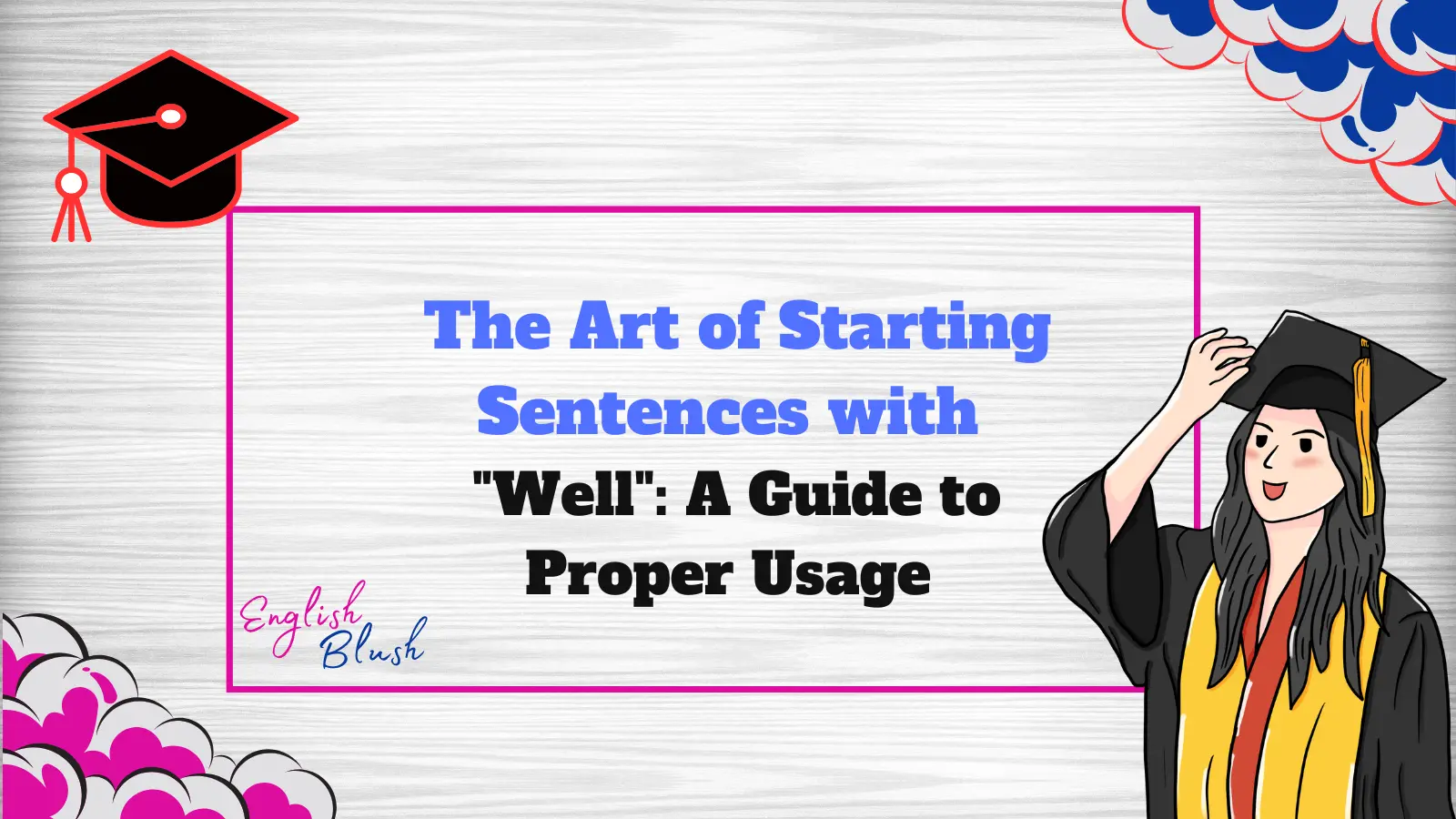Using “well” at the beginning of a sentence can add a conversational tone to your writing or speech. It works well in both formal and informal contexts when used appropriately. In this article, we’ll dive deep into how and when to use “well,” provide examples, and suggest alternatives to keep your language varied and engaging.
What Does “Well” Mean in Sentences
“Well” is a flexible word with various uses. At the start of a sentence, it often serves as a filler, a softener, or a transition. Its role depends on the context. Let’s explore the main purposes of this simple word:
1. As a Filler Word
When “well” is used as a filler, it doesn’t add much meaning. Instead, it gives the speaker time to think before continuing their thoughts.
Example:
- Well, let me think about how to solve this problem.
Here, “well” shows hesitation or a pause for thought.
2. To Indicate Transition
“Well” can help transition from one topic to another or respond to something said earlier.
Example:
- Well, now that you mention it, let’s discuss the next steps.
It signals a shift in the conversation, leading smoothly into a new topic.
3. To Add Emphasis or Show Contrast
In some cases, “well” emphasizes a statement or contrasts it with the previous one.
Example:
- Well, I wasn’t expecting that at all!
This usage adds emotional weight or mild surprise to the sentence.
Formal and Informal Uses of “Well”
Informal Settings
In casual conversations or informal writing, “well” helps create a friendly and approachable tone.
Examples:
- Well, isn’t this a pleasant surprise!
- Well, I guess we’ll just have to wait and see.
In these cases, “well” keeps the dialogue natural and relaxed.
Formal Settings
In formal contexts, “well” can sound polished when used correctly. It helps transition gracefully or soften the tone.
Examples:
- Well, after careful consideration, we decided to approve the proposal.
- Well, thank you for your time today. We look forward to your feedback.
It’s important to avoid overusing “well” in formal settings, as it can make you sound unsure or less confident.
Common Mistakes When Using “Well”
1. Overusing It
Using “well” too often can make your writing repetitive or unprofessional.
Example of Overuse:
- Well, I think we should try again. Well, it didn’t work last time, but well, let’s not give up.
2. Misplacing It
The placement of “well” matters. It works best at the start of a sentence when transitioning or responding.
Incorrect Placement:
- The well, idea seems promising.
- She well did her part.
Correct Placement:
- Well, the idea seems promising.
- Well, she did her part.
Alternatives to “Well”
Using “well” repeatedly can become monotonous. Luckily, there are plenty of alternatives to consider based on the tone and context.
Informal Alternatives
- Hmm: Hmm, I’m not sure about that.
- Okay: Okay, let’s look at this from another angle.
- Oh: Oh, I didn’t realize that.
Formal Alternatives
- To begin with: To begin with, let’s review the data.
- On that note: On that note, let’s proceed with the discussion.
- Let’s see: Let’s see, what options do we have here?
Neutral Alternatives
- In that case: In that case, let’s proceed with the new plan.
- So: So, what do you think of this idea?
- Indeed: Indeed, that’s an interesting perspective.
Examples of “Well” in Different Scenarios
Everyday Conversations
- Well, I hadn’t thought of it that way.
- Well, maybe we should ask someone else for advice.
Professional Writing or Meetings
- Well, our primary goal is to meet the deadline.
- Well, let’s summarize the points discussed so far.
Storytelling
- Well, there was this one time when I got lost in the mountains.
- Well, you wouldn’t believe what happened next!
Final Thoughts on Using “Well”
“Well” is a small word with a big impact. When used correctly, it adds flow, softens your tone, and transitions your thoughts effectively. However, overusing or misplacing it can make your communication seem less polished.
By understanding its purpose and learning alternatives, you can use “well” confidently in any context—whether you’re writing an email, telling a story, or having a casual chat.
Remember: moderation is key! With practice, you’ll master the art of using “well” to enhance your speech and writing.





